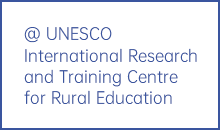Abstract
According to the World Bank, the Sudanese population reached close to 38 million in 2014.63% of them are still living in rural areas and 40.8% are below the age of 15. These young people possess great potential in shaping the future of their country if their own potential is fostered by quality education. To deliver high quality education, schools must attract, develop, and retain effective teachers. Rural teacher professional development is regarded as one of the key factors that help in achieving quality in rural education, where a large number of teachers do not have any teacher education. This paper is a policy analysis study to analyse the current situation of teacher education policy and practice in Sudan focusing on rural areas. It is more focused on teachers working conditions in rural schools, recruitment and retention of teachers and rural teachers professional development in Sudan including; Pre-service teacher preparation, in-service teacher training and perceived impact of professional development. It is also an attempt to briefly review and analyse some barriers and difficulties facing rural teacher, policy issues, and new reform for rural teacher training. The paper concludes that, poverty and conflicts continues to be powerful factors that impacts on access to quality of education and affect the recruitment of more qualified teachers in rural areas and areas affected by conflicts, therefore, there is a dire need to improve education and teachers’quality in rural schools of Sudan.
Keywords: Rural Education, Poverty, Conflicts, Teacher Professional Development, Pre-service Teacher Education, In-service Training, Recruitment, Retention, Working Condition.













